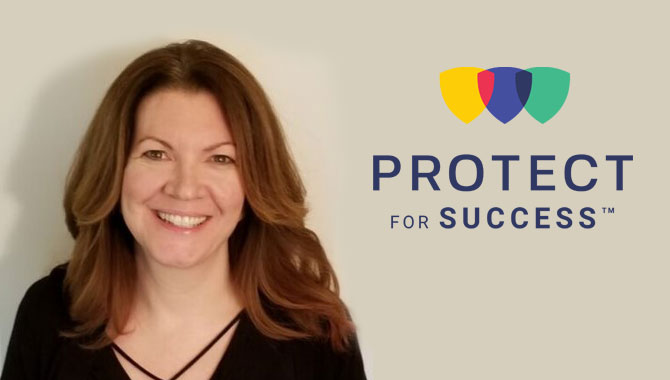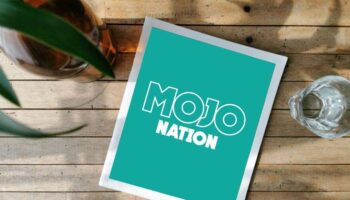Don’t be outgamed

Remember the last time you were at a get-together with friends or family, and on the drive home you started to dream up a great idea or concept for a board game?
Or maybe you were watching TV, singing in the shower, or enjoying a sunny afternoon walk and then your head lit up like a giant light bulb? And you think you’ve just come up with the most amazing board game of all time. Yay!
You’re jumping and running around high fiving anyone around you until it hits you… “NOW WHAT?!” Well, now the real fun begins, turning that vision into a real product that you can test, protect, and pitch; and if the stars align correctly, you will manufacture, sell, or even license your creation.
As with any product – in this case a board game – there are many variables that can come into play (pun intended):
(i) The direction you are looking to go… Do you want to sell, license, or crowdfund?
(ii) The resources you have… Are you bootstrapping this yourself, or are you able to get some funding behind your project?
(iii) Most importantly, figuring out what you can do to protect yourself… We can help you with that!
Of course, in this short piece, we can’t go over all possible steps you can take to bring your game to life, but we can highlight some suggestions – mainly on the protection side – that you may want to consider. Hopefully, we can give you some direction as you start your journey.
1. Prototype your concept. In other words, you can create your game in physical form – it doesn’t have to be perfect – that you can play in a real-life environment. This will allow you to experiment with your vision, refine it and, as you come closer to the final product, get a good grasp of what your game is going to look like and what gameplay will consist of. When your game is brought to life in physical form, that’s when the rubber meets the road.
BUT, before you show it to anyone, you should think about protecting your game. That’s mainly because once others see it, they can copy it and possibly protect it before you do. I’m not saying to be distrustful of others, but I’ve seen first-hand when that happens and it’s not a good situation to be in. Read on…
Advertisement
2. Protect your game. Here are some basic tools you can consider:
NDAs
Copyrights
Trademarks
Patents
So, where do you start? It really depends on your situation. We’re just going to review some protections for your consideration. Please keep in mind that these do not cover everything you should consider and that, in most cases, it’s a good idea to consult a professional who has experience in the industry.
A. NDAs (or Non-Disclosure Agreements): An NDA is an agreement between you and the party you’re going to share your ideas with. A well-drafted NDA provides some confidentiality for discussions or presentations you may be doing in connection with your game. Keep in mind not every NDA says the same thing, and you may be limited in your ability to enforce confidentiality, especially with larger companies – that’s because their NDAs typically protect them by saying they may already be working on a similar product.
Regardless of if you decide to use one or not, a real key is to research who you will be dealing with and determine if they are a reputable company. It’s important you know who you’re going to be working with. And don’t forget to read any contract before you sign it. You might end up signing it all away before you even get started; yes, that happens.
B. Copyrights: Copyrights won’t protect the idea, system, method, or device associated with your game; it also won’t prevent others from developing another game based on similar principles or game play. Think of how many movies have similar storylines, but the characters and specific circumstances are different. But, a copyright will protect your particular expression of the game you’ve come up with, so you should be able to protect your instructions, game pieces, actual board designs, characters, and so on.
You should note that when filing a copyright application with the US Copyright Office, in this situation, you’ll have two main options for protection… Remember there are some complexities with both, and you should research the elements that may pertain to your unique game first – or hire a professional to help.
• Literary Works: For games, this would mean protection of the text and overall content. In some cases, you may not be able to protect something like a trivia fact, but you should be able to protect your exact compilation. And you should be able to protect the instructions or directions for playing your game.
• Visual Art Works: This would apply to the graphic or pictorial aspects of your game. Think of the artwork on the playing board, the characters, and any designs or 3D pieces associated with your game. It could also include the illustrations on your instructions.
C. Trademarks: Another important protection (and tool in your toolbox) is a trademark. You can potentially protect the name of your game, your logo and even possibly your trade dress – think the “look and feel” of the game such as packaging… But getting trade dress protection can be a challenge to get approval for because it has to be non-functional, have secondary meaning, and of course, it can’t be confusingly similar to other trade dress / trademarks. Keep in mind that sometimes a great name and logo can end up being even more valuable than the actual game you’ve come up with.
D. Patents: Believe it or not, board games can sometimes qualify for patent protection (either a design or utility patent). Patents are the most complex (out of our list) and depending on which you protect, will likely be the most expensive to invest in. Iconic games like Monopoly, Rubik’s Cube, Twister, Scrabble, and Battleship have been granted patents. When it comes to patents, we recommend you consult an experienced professional.
A Few Tips…
Tip 1: Remember, not everything qualifies to be protected under trademarks, copyrights, or patents. You need to understand the criteria or find a professional to help. Otherwise, what you’re trying to do may not make it to the finish line.
Tip 2: Your ability to sell or license your game is predicated on you owning the intellectual property (IP)… Or at least having explicit and exclusive permission and control over the IP in question. If you don’t own it or exclusively control it, that means someone else can stop you from using it. More importantly ownership and/or control gives you the ability to enforce and protect what you have worked so hard on.
Tip 3: If you want to license your game, companies usually want to see you’ve protected something in connection with your game. After all, what are they licensing?
Hopefully, you have a better idea of how to protect your board games – you do have some options whether it’s using an NDA and/or filing for IP protection in some capacity. I know…you’re probably thinking to yourself, “Hey, I just want to invent something and bring it to market.” I completely understand, but this is just the tip of the iceberg and identifying what you can do to protect yourself is your first BIG STEP to success!
You put a lot of time and effort into your ideas, and you should also put just as much effort into looking at how you can protect your ideas. Be ready for your next deal – educate yourself and give yourself the edge!
You got this!
Stephanie.
**********************************************
**Our Protect for Success™ course can help you figure out what intellectual property you have, whether you own your idea & what to look out for in your contracts. Get the edge. Click on the banner above to learn more.**
Disclaimer: This article is for informational purposes only and not intended as legal advice.
Note from the Author, Stephanie Pottick: I’m excited to share this article with you! I’m a U.S. attorney & course creator who used to work in the toy industry on the business side so I’ve done my share of product creation, protection and licensing and understand them from both the business & legal perspectives. My passion is to educate creators so they can launch & license with confidence. Thanks to Mojo Nation & Brands Untapped for the opportunity to connect with you.
E-mail me @[email protected] – I’d love to hear what you think.
–
To stay in the loop with the latest news, interviews and features from the world of toy and game design, sign up to our weekly newsletter here

























